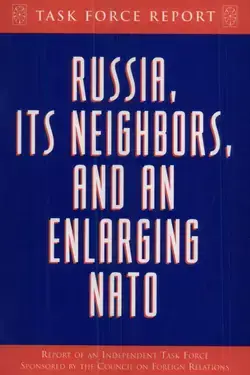
Russia, Its Neighbors, and an Enlarging NATO

- Task Force Report
- Analysis and policy prescriptions of major foreign policy issues facing the United States, developed through private deliberations among a diverse and distinguished group of experts.
More on:
NATO’s decision to enlarge comes at a time of historic opportunity. With this growth, NATO will issue invitations to additional European states, thereby extending and reinforcing the zone of stability that Western Europe has enjoyed for fifty years to some of the continent’s most fought-over territory. However, Russian leaders see the enlargement of NATO as a threat not only to Russian security but also to the success of Russia’s transformation since the collapse of the Soviet Union. In the face of continued Russian opposition to enlargement, it is imperative that the Unites States strive to improve NATO-Russian relations and to assure the country of its security and role in the face of a new Europe.
This 1997 Independent Task Force endeavors to determine whether Russia’s concerns can be managed and its internal transition bolstered without slowing or stopping NATO enlargement, as well as addressing the issue of security in the Balkans. The Task Force, chaired by Richard G. Lugar and directed by Victoria Nuland, concluded that Russia’s concerns and NATO enlargement need not be incompatible. If Russia accepts NATO enlargement, the report maintains, “Russian reform will benefit and European security overall will be enhanced, as will the climate for closer ties between the Alliance and Russia’s neighbors.” At the same time, the Clinton administration and the Alliance must, at every stage of the negotiation, remain vigilant regarding Russian efforts to stop or stall expansion, to turn NATO into a social club or debating society, or to have a veto over its decisions.
More on:
 Online Store
Online Store
